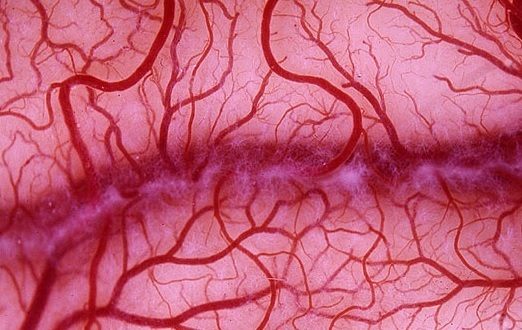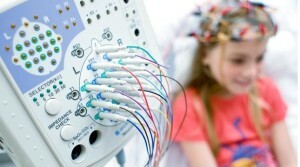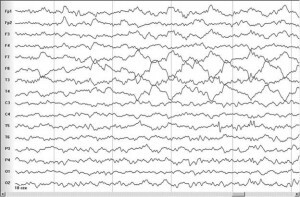Why there is dizziness, weakness, sweating and nausea
Contents:
- Causes dizziness, nausea, weakness, sweating
- Diabetes
- Fasting,
- depletion of vascular dystonia
- Pregnancy
- Infectious Diseases
- hyperthyroidism
- Traumatic brain injury, stroke
- intoxication, dehydration
- VIPoma
- Diagnosis and treatment
 Symptoms such as dizziness, nausea, weakness, sweating can be a sign of some diseases. Symptoms sometimes indicate a lack of certain substances and resources in the body. How to cope with them and when the symptoms are signs of serious violations?
Symptoms such as dizziness, nausea, weakness, sweating can be a sign of some diseases. Symptoms sometimes indicate a lack of certain substances and resources in the body. How to cope with them and when the symptoms are signs of serious violations?
Causes of dizziness, nausea, weakness, sweating
Simultaneous combination of such symptoms as dizziness, cold sweat, can talk about endocrine diseases, energy deficiency, vascular pathologies. These signs usually appear in such pathologies:
- Diabetes mellitus type 2 or insulin overdose.
- Fasting or exhaustion.
- Vegeto-vascular dystonia.
- Pregnancy.
- Disorder of the function of the vestibular apparatus.
- Infectious diseases( cold, whooping cough, rotavirus, hepatitis).
- Diseases of the thyroid gland.
- Craniocerebral trauma.
- Hormonal active tumors of the digestive system( VIPoma).
- Intoxication.
- Dehydration.
 Find out if your head can be dizzy before your period? Why the head is spinning, if not PMS is to blame.
Find out if your head can be dizzy before your period? Why the head is spinning, if not PMS is to blame.
Read why there is nausea and headache: the causes of the condition.
Diabetes mellitus
In diabetes mellitus, energy deficiency develops due to poor assimilation by the cells of the main sugar - glucose. And with the second type of this endocrine disorder, insulin can be released in excess. In different periods in patients, then sensitivity to insulin increases, then decreases.
With a sharp increase in sensitivity to insulin or its increased isolation, injection by injection may cause weakness. It is caused by increasing hypoglycemia - a decrease in the level of glucose in the blood. The brain at the same time starving without its main resource, which can manifest as vegetative symptoms, such as sweating, nausea.
Hypoglycemic state with excessive introduction of insulin, a sharp increase in sensitivity to the body is dangerous. It can lead to a coma that is life threatening.
Fasting, exhaustion
During hunger the blood glucose is running low because it does not come from food. Its replenishment comes from glycogen stores in the muscles and liver. The hormone cortisol stimulates its release from the depot. If these resources are depleted, then the body turns to the synthesis of energy from fat by oxidation of fatty acids. In this case, weakness and poisoning with products of their own metabolism - ketoacidosis.
Ketone bodies accumulate in the blood, toxicly affecting large amounts of the brain. They are excreted through the stomach, resulting in nausea, vomiting. If the secretion occurs through the skin, sticky sweat is emitted with the smell of acetone or fruit. Such a prolonged state can lead to a ketoacidotic coma.
Vegeto-vascular dystonia
This is a violation of the functioning of the autonomic nervous system, which regulates the vascular tone. Abundant sweating, nausea, weakness indicate a neurocirculatory crisis in the vagoinsular type. Sticky sweat is prominent in sympathetic-adrenal crises.
The vagoinsular crisis is the result of the excessive activity of the parasympathetic nervous system. Acetylcholine, which is released in large quantities, dilates the blood vessels and stimulates the pancreas secretion of insulin. A sharp expansion of blood vessels leads to a redistribution of blood in the body and a violation of hemodynamics.
 In this case, the brain is worse supplied with blood and there is weakness, down to fainting. Therefore, a person often becomes dizzy and throws into sweat, his face becomes covered with red spots, there may be urges to defecate. Sweating while abundant.
In this case, the brain is worse supplied with blood and there is weakness, down to fainting. Therefore, a person often becomes dizzy and throws into sweat, his face becomes covered with red spots, there may be urges to defecate. Sweating while abundant.
With the sympathoadrenal crisis, hormones such as adrenaline and cortisol are secreted. At the same time, the bronchi expand, hyperventilation occurs, and the head turns. Vessels are narrowed, which leads to oxygen starvation of the brain. A cold sticky sweat is allocated, often there is a urge to urinate, dizziness and weakness.
Pregnancy
In this state there is a hormonal reorganization and a change in metabolic processes. The hormone progesterone is excreted, which worsens the microcirculation, reduces the venous tone, and the tone of the smooth muscles of the internal organs. This leads to stagnation of bile, a violation of the motility of the stomach, as a consequence, to nausea, vomiting.
In pregnancy, the activation of the parasympathetic nervous system occurs, which is manifested in weakness, profuse sweating, salivation, dizziness. Often, such symptoms in pregnancy indicate gestosis, including liver damage, kidney damage, increased blood pressure.
The gestosis is caused by autointoxication due to the release of toxins from the bone, fatty tissue of a woman. Splitting of bone, adipose tissue occurs under the influence of parathyroid hormone and prolactin, respectively, which increase during pregnancy.
Infectious diseases
Such diseases as cold and flu lead to a sharp rise in body temperature, fever, chills, increased sweating. Often there is an aversion to eating in the patient. In whooping cough, the parasympathetic nervous system is activated, the bacterium causes not only damage to the respiratory system, cough, but also the secretion of insulin. Activation of acetylcholine synthesis leads to increased sweating, sometimes vomiting, dizziness.
Hyperfunction of the thyroid gland
Hyperthyroidism is a disorder in the endocrine system, in which an increased amount of hormones of triiodothyronine and thyroxine is released. These substances increase the activity of metabolism in cells, at an increased level cause sweating and lack of oxygen, a violation of the heart.
Craniocerebral injuries, strokes
The defeat of the central nervous system also leads to a mismatch of autonomic functions. This leads to symptoms such as dizziness, nausea, weakness, sweating and sweating. Hemorrhages and injuries in the vestibular nuclei disrupt the balance of the body, leading to the dizziness.
Intoxication, dehydration
Intoxication with drugs, alcohol, drugs, chemicals leads to the fact that the body is trying to get rid of poisoning. For cleaning, he uses mucous membranes, skin, through which secretes toxins with sweat, gastric juice. This causes profuse sweating, salivation, vomiting.
Dehydration disturbs kidney function, cardiovascular system. At the same time the organism is under stress. Lack of water leads to the release of cold sticky sweat, dizziness.
Vipoma
This pancreatic tumor secreting vasoactive intestinal peptide leading to face redness and sweating. Nausea and other digestive disorders are also possible.
 Learn about the main causes of vertigo on nerves and symptoms.
Learn about the main causes of vertigo on nerves and symptoms.
Read why dizziness occurs after eating: causes, symptoms, treatment.
Do you have a wadded head due to pressure? Learn about the causes of poor health.
Diagnosis and treatment of
To determine the causes of pathology, the central nervous system is used:
- Brain ultrasound or magnetic resonance imaging.
- Rheoencephalography.
- Electroencephalography.
General blood, urine tests are also required.
In hypoglycemic conditions, the patient needs to refresh or dissolve several glucose tablets. In the case of insulin coma, a glucose solution is administered intravenously. Pregnancy gestosis also requires energy in the form of glucose to maintain liver function, which suffers from intoxication. Sweet tea with lemon will relieve nausea.
Vegeto-vascular dystonia needs symptomatic treatment and optimization of the patient's lifestyle. Cold sweat and dizziness, weakness - serious symptoms that require attention, diagnosis and treatment in the detection of primary pathology.
write the question in the form below:



